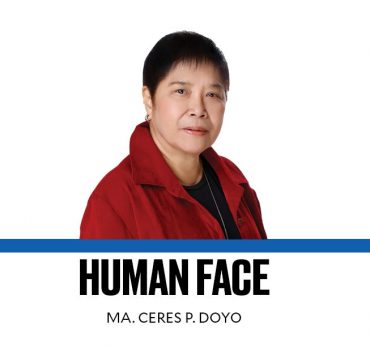Too obvious to ignore

It sounds like a spy movie with all the classic subterfuge and layers of deception—except it’s all very real, and could severely impact the country’s political future and compromise our sovereignty.
After several telling incidents, China’s moves to influence the May 2025 elections have become too obvious to ignore.
Officials from the National Security Council (NSC), the National Bureau of Investigation (NBI), the Senate, and even Malacañang recently sounded the alarm over China’s possible interference in the coming polls through the use of troll farms to boost disinformation, spy gadgets to hack into government sites, and funding support for pro-China candidates.
During a Senate hearing last week, Sen. Francis Tolentino exposed China’s alleged “hidden and sinister” operations against the Philippines using a troll farm.
The senator presented what he said was a 2023 service agreement between the Chinese embassy in Manila and InfinitUs Marketing Solutions, a Filipino-registered firm, with proof of a P930,000 payment for it “to provide keyboard warriors” or trolls to amplify disinformation favoring China.
Tolentino said the NBI’s arrest of a Chinese national near the Commission on Elections’ (Comelec) main office last week bolstered his committee’s findings on Beijing’s possible espionage activities.
Espionage charges
The arrested Chinese national yielded an international mobile subscriber identity device, an eavesdropping equipment that can intercept mobile phone traffic and track the location of mobile phone users.
While the Comelec has insisted that its voters’ databank has remained intact, NBI Director Jaime Santiago said the suspect had been under surveillance for four to five days and was found to have stayed near the poll body’s premises for 30 minutes at a time. The suspect, who holds a Chinese passport with a tourist visa, is expected to face espionage charges in relation to the cybercrime law.
“This isn’t an isolated case,” Tolentino said, citing a similar arrest in January, with the financial documents linked to InfinitUs seized from the suspects.
Intelligence authorities similarly warned against China abetting “divisive political discourse” in the Philippines, with NSC Assistant Director General Jonathan Malaya telling a Senate hearing that “there are information operations [showing] that [China is] actually interfering in the forthcoming elections.”
Usual modus for spying
Beijing, said Tolentino, is “backing candidates who might repeal pro-sovereignty laws and undermine PH-US defense ties.” Several front-runners in the Senate race are known to be staunch allies of former president Duterte who maintained close links with Beijing during his term.
Recall as well the case of Li Duan Wang, also known as Mark Ong, whose bid for naturalization based, ironically, on Tolentino’s bill, was approved posthaste by Congress. President Marcos however vetoed the bill that was opposed solely by Sen. Risa Hontiveros, who had exposed Li’s dubious connections to a Pogo hub raided for alleged criminal activities. Police recently linked Li to the kidnap-murder of billionaire businessman Anson Que.
And then there’s former Bamban, Tarlac mayor Alice Guo, who was found to have falsified her Filipino citizenship, and was later identified by detained self-confessed Chinese spy She Zhijiang as being part of China’s Communist Party.
While planting partisans in a foreign country is the usual modus for spying, former Interior secretary Benhur Abalos has warned that election interference also happens through information warfare and questionable funding.
With anonymous posts by trolls on social media enabling such meddling, former senator Panfilo Lacson has urged the repeal of the country’s anti-espionage law, Commonwealth Act No. 616 of 1941, which he said is no longer responsive to modern threats, including fake online posts.
False narratives
Hontiveros similarly asked her colleagues to pass the Foreign Interference Act that would hold accountable “any Filipino found to be colluding with foreign powers.” She added: “This is a serious national security concern that undermines the integrity not just of our national elections, but also of our democracy
While China has denied the spying and election meddling allegations, the words of its Foreign Minister carry little weight, given Beijing’s patently false narratives despite its videotaped acts of aggression in the West Philippine Sea.
Call it reelection optics, but the fighting stance of some political candidates is just what might be needed to counter the self-serving disinformation being peddled by trolls and China’s proxy candidates.
Malacañang, for its part, has vowed “to conduct a thorough investigation to uncover the truth behind [the election interference] allegations.” As it should.
Such probe is a timely reminder for people to be more critical of online information, and to vote for worthy candidates who won’t allow China—or other alien powers—to subvert the country’s national security and weaken its democratic processes.





















A pilgrimage toward the May 12 elections